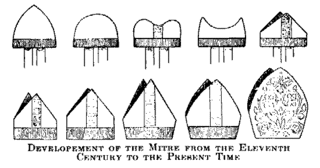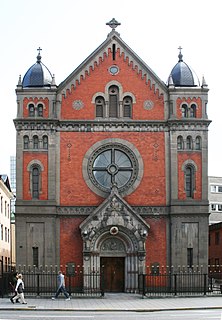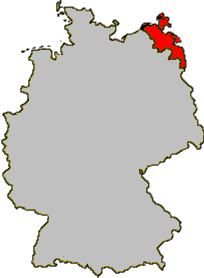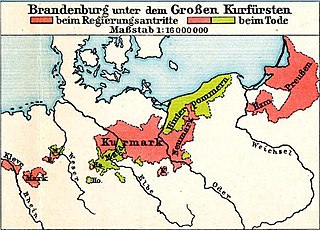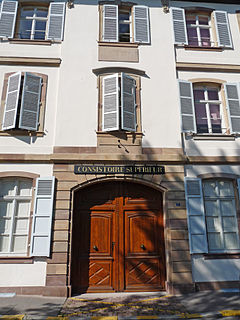Lutheran usage
The examples and perspective in this section may not represent a worldwide view of the subject.(December 2010) (Learn how and when to remove this template message) |
Sweden
Superintendents were created in Sweden after the Protestant Reformation. The office was similar to that of bishop, but instead of being ordained by the archbishop, the superintendent was appointed by the Crown. This new model of ecclesiastical polity was partly political, as the Roman Catholic bishops before the Reformation held considerable political power and often used it against the king. Superintendents' loyalty was supposed to lie with the head of the new Church of Sweden, the monarch. Some Lutheran theologians also considered the term less Catholic and therefore preferable to 'bishop'.
In Sweden proper, the following dioceses have been governed by a superintendent:
- Diocese of Kalmar (1603–1678, thereafter presided by a bishop till 1915, when merged with the diocese of Växjö.
- Diocese of Göteborg (1620–1665, thereafter presided by a bishop)
- Diocese of Visby (1645–1772, thereafter presided by a bishop)
- Diocese of Mariestad (1583–1646, superintendent moved to Karlstad and Mariestad absorbed into the diocese of Skara)
- Diocese of Karlstad (1647–1772, superintendent moved from Mariestad; presided by a bishop since 1772)
- Diocese of Härnösand (1647–1772, thereafter presided by a bishop)
The diocese of Lund was equally administered by superintendents from 1537 to 1637, but was at that time part of Denmark.
Norway
- Superintendents in the diocese of Oslo
- Hans Rev 1541-45
- Anders Madssøn 1545-48
- Frants Berg 1548-80
- Jens Nilssøn 1580-1600
- Anders Bentssøn Dallin 1601-1608
- Niels Clausen Senning 1608-17
- Niels Simonsen Glostrup 1617-39
- Oluf Boesen 1639-46
- Henning Stockfleth 1646-64
- Superintendents in the diocese of Stavanger
- Jon Guttormsen 1541-57
- Jens Gregoriussen Riber 1558-71
- Jørgen Erikson 1571-1604
- Laurits Clausen Scabo 1605-26
- Thomas Cortzen Wegener 1627-54
- Marcus Christensen Humble 1655-61
- Superintendents in the diocese of Bjørgvin
- Gjeble Pederssøn 1537-57
- Jens Skjelderup 1557-82
- Anders Foss 1583-1607
- Anders Michelsen Kolding 1607-15
- Niels Paaske 1616-36
- Ludvig Munthe 1636-49
- Jens Pedersen Skjeldrup 1649-65
- Superintendents in the diocese of Nidaros
- Thorbjørn Olavssøn Bratt 1546-48
- Hans Gaas 1549-78
- Hans Mogenssøn 1578-95
- Isak Grønbek 1596-1617
- Anders Christensen Arreboe 1617-22
- Peder Jenssøn Schjelderup 1622-42
- Erik Bredal 1643-72
Baltic states
The Church of Sweden's organisation in the Baltic provinces were created by similar provisions. Livonia came under a superintendent in 1622 and a superintendent-general from 1678. Superintendents were also appointed to Ingria in 1641 and to Saaremaa in 1650; a superintendent was also appointed to Estonia for a shorter period, probably 1622-1638, as well as to Riga and Reval.
German-speaking Europe
In 1652 the general government of Swedish Bremen-Verden introduced a Consistory, led by a General Superintendent, for this German territory of Imperial immediacy.
In 1535 the Estates of the Land of Hadeln introduced a consistory, led by a General Superintendent.
The Evangelical Lutheran State Church of Hanover used to maintain several consistories until 1922, each led by a General Superintendent.
In the Electorate of Brandenburg the title General Superintendent was used until 1632. In the years since 1817 during the constitutional reforms of the Evangelical Church in Prussia, including the then March of Brandenburg provincial subsection, the title General Superintendent was reintroduced in 1828, with each general superintendency (German : Generalsuperintendentur) supervising a number of deaneries. The title superintendent referred to the head of a deanery.
In the Evangelical Church of Berlin-Brandenburg-Silesian Upper Lusatia, a successor church body of the former, the term Superintendent refers to the head of a deanery (German : Kirchenkreis). The term General Superintendent refers to the each head of one of the three regions (German : Sprengel), each comprising several deaneries.
Slovenia
From 1561 to 1564 Primož Trubar was superintendent of Slovenian Protestant church in Ljubljana (Laibach).
